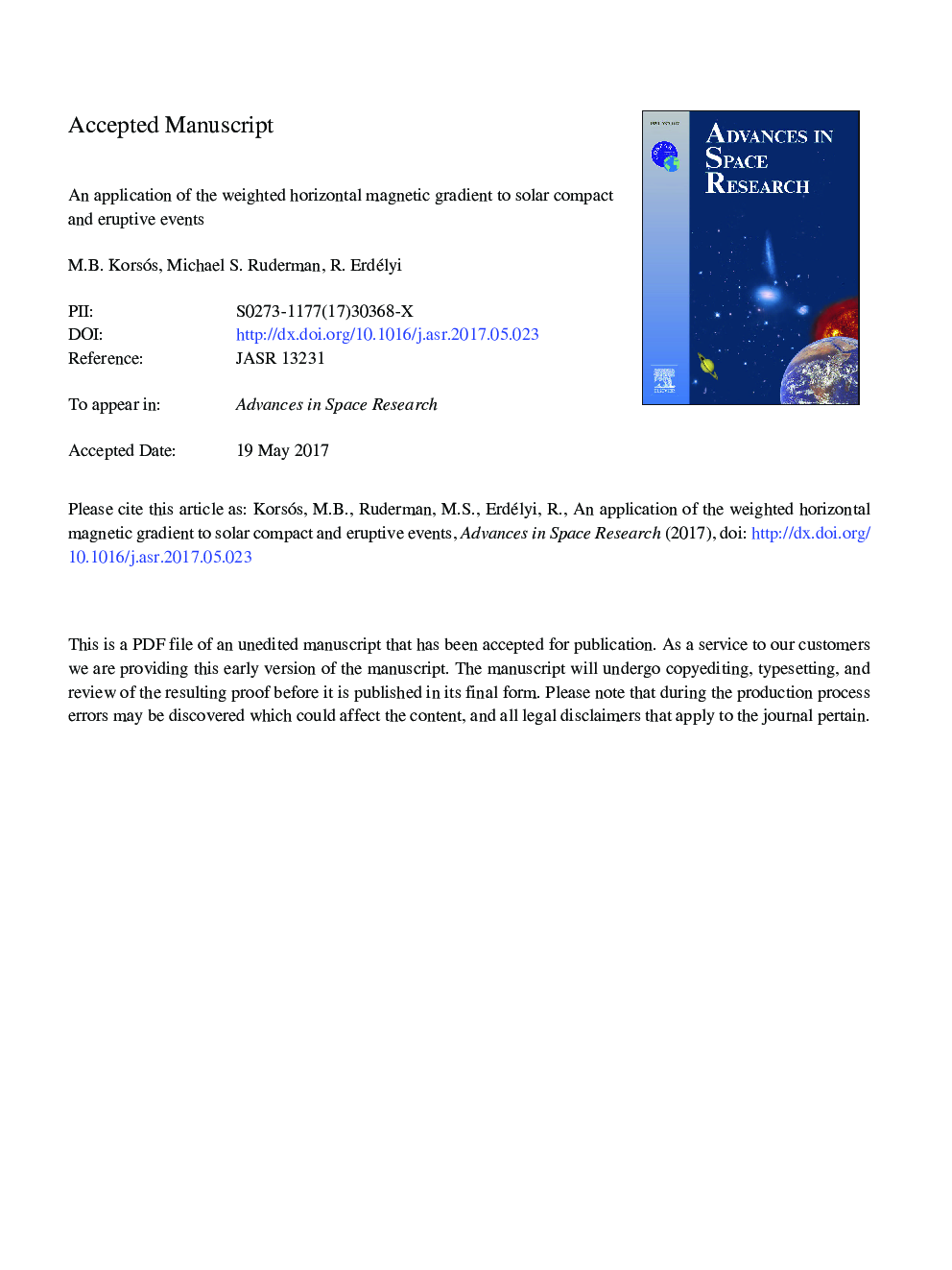| Article ID | Journal | Published Year | Pages | File Type |
|---|---|---|---|---|
| 8132319 | Advances in Space Research | 2018 | 9 Pages |
Abstract
We propose to apply the weighted horizontal magnetic gradient (WGM), introduced in Korsós et al., 2015, for analysing the pre-flare and pre-CME behaviour and evolution of Active Regions (ARs) using the SDO/HMI-Debrecen Data catalogue. To demonstrate the power of investigative capabilities of the WGM method, in terms of flare and CME eruptions, we studied two typical ARs, namely, AR 12158 and AR 12192. The choice of ARs represent canonical cases. AR 12158 produced an X1.6 flare with fast “halo” CME (vlinear = 1267 kms-1) while in AR 12192 there occurred a range of powerful X-class eruptions, i.e. X1.1, X1.6, X3.1, X1.0, X2.0 and X2.0-class energetic flares, interestingly, none with an accompanying CME. The value itself and temporal variation of WGM is found to possess potentially important diagnostic information about the intensity of the expected flare class. Furthermore, we have also estimated the flare onset time from the relationship of duration of converging and diverging motions of the area-weighted barycenters of two subgroups of opposite magnetic polarities. This test turns out not only to provide information about the intensity of the expected flare-class and the flare onset time but may also indicate whether a flare will occur with/without fast CME. We have also found that, in the case when the negative polarity barycenter has moved around and the positive one “remained” at the same coordinates preceding eruption, the flare occurred with fast “halo” CME. Otherwise, when both the negative and the positive polarity barycenters have moved around, the AR produced flares without CME. If these properties found for the movement of the barycenters are generic pre-cursors of CME eruption (or lack of it), identifying them may serve as an excellent pre-condition for refining the forecast of the lift-off of CMEs.
Related Topics
Physical Sciences and Engineering
Earth and Planetary Sciences
Space and Planetary Science
Authors
M.B. Korsós, Michael S. Ruderman, R. Erdélyi,
